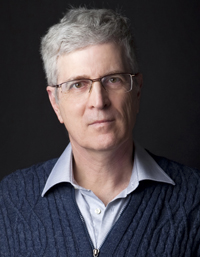Photos of Nathan
Click any photo for a hi-res version.
![]() Download a zip archive with multiple sizes of these photos.
Download a zip archive with multiple sizes of these photos.
Very Short Bio
Nathan Zeldes is a globally recognized thought leader in the search for improved knowledge worker productivity. After a 26 year career as a manager and principal engineer at Intel Corporation, he now helps knowledge-based organizations solve core problems at the intersection of information technology and human behavior. His work can be seen at https://www.nathanzeldes.com.
Regular Bio
Nathan Zeldes is a globally recognized thought leader, consultant and public speaker who helps knowledge-based organizations solve core problems at the intersection of information technology and human behavior.
A physicist morphed into an organizational change agent, Nathan has navigated a fascinating career spanning management and engineering roles in IT, corporate academic relations, semiconductor engineering and forensic science. For most of two decades he’s led Intel Corporation in the search for improved knowledge worker productivity, initiating and leading optimal corporate technology adoptions in the domains of Messaging, Internet applications, Innovation Management, Remote and Distributed work, and Knowledge Management. Since 2009 he applies his unique experience and insight to help his clients harness today’s rapidly evolving technology without disrupting the all-important fabric of company culture and employee behavior.
A key component in Nathan’s work is mitigating the problem of email and information overload which is harming the productivity and quality of life of people everywhere. He had identified the problem in 1994, and since then he’s developed and deployed original solutions at Intel and other companies. He is president and co-founder of the Information Overload Research Group, which brings together practitioners from academia, corporations, solution vendors and consultancies to focus on this problem. He is also active at present in the areas of lecturing, startup mentoring, Technical Leadership development, and curating exhibitions in companies and science museums. For the full details see https://www.nathanzeldes.com.
![]() Read Nathan’s formal CV
Read Nathan’s formal CV
Quotable quotes
- “It’s a Prisoner’s Dilemma. No one wants there to be more emails; yet nobody wants to be the first to send less of them.”
– Nathan Zeldes in The Marker - “The best ideas for braving today’s hyperactive workplace are obvious once you think about them – which you would if you had a quiet moment to think in!”
– Nathan Zeldes - “Many promising engineers feel that to advance they must become managers – mediocre, frustrated ones. This Lose/Lose situation can be prevented.”
– Nathan Zeldes in an MBA lecture to HR managers - “You have to take ownership of your email and its use. People somehow feel that the junk mail coming to them is an act of God. They just accept it and figure, ‘What can I do about it?’ But I say, if someone came into your office every day and punched you in the nose, you would do something about it.”
– Nathan Zeldes in Fast Company - “Managers are aware of the Information Overload problem, but they rarely understand its full impact. It takes leadership and courage to make changes, but it’s well worth the effort. It gives employees back their sanity.”
– Nathan Zeldes in the Montreal Gazette - “It’s surprising how little has been done at an organization-wide level to fight a problem as big as information overload, considering that the cost of fixing it is trivial compared to the potential benefit. This failure may in part be due to the critical role of electronic communications in today’s workplace and beyond; many people feel horrified by the thought of any interference with the free flow of information. This thinking, however, is wrong. In reality, there is a continuum between doing nothing and preventing all communication. We need to discover the optimal balance of communication and thinking time, human interaction and concentration, useful messages and junk. Convincing individuals and organizations to actually do something is not easy, but a slowly growing number of cases show that people can manage information with good results. What is most needed are managers with the vision and leadership to move their organizations to make the changes.”
– Nathan Zeldes in IEEE Spectrum



